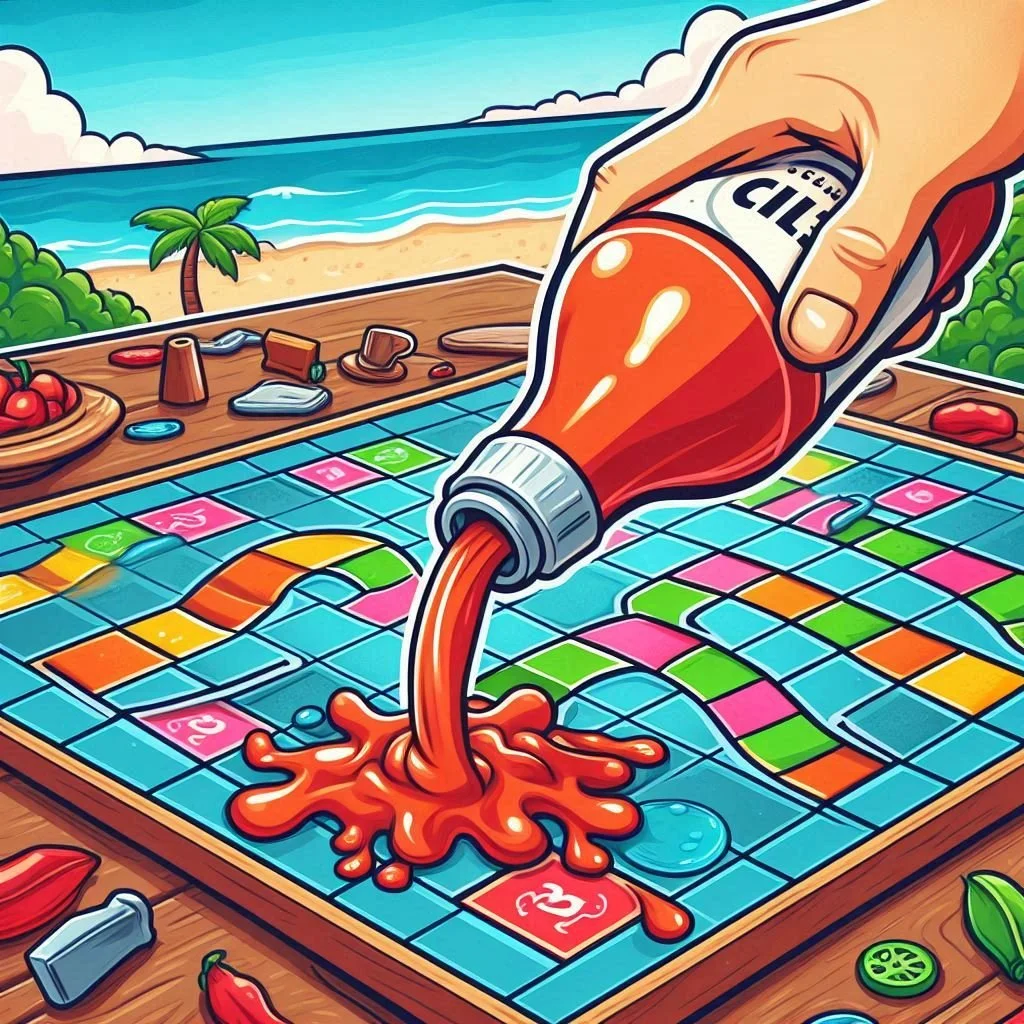I started writing a blog around reviews and feedback. 250 words later, I realized the blog I actually wanted to write was about a peculiar phenomenon I’ve been observing in BGG reviews and demo comments. Some folks will play a game with us, then comment that they enjoyed it but wish rule X was different. The polite version of me listens intently, but my actual internal reaction is always “then play that way”.
As an example, during a Far Away demo, someone commented that the players should roll the Fight DIE when they attack a creature. This would give more variance in combat and lead to more domesticated creatures. (For context the actual rule is that players automatically do one damage – the DIE is for when players get attacked.) I have my design reasons for my choice, but I think the other way could be fun too (in fact, another group did play that way). However, the commenter opted not to play with their idea and, instead, carried on as designed. I don’t really know if this rule is why the person didn’t buy the game afterwards, but that’s what my heart believes.
I have this theory that the more savvy you are with board games, the more you want to be accurate with the rules. My friend group will pause while looking up edge cases on BGG. I’m guilty of that behavior too, despite this being my pet peeve. It’s in stark contrast to when I played D&D as a high schooler. We rolled with whatever. The inside cover of my player guide had a whole list of rules we added to improve balance and flow. Looking back, I have no idea if those rules were better (except for removing material spell components – miss me with that tedium). What I do know is that it made the experience uniquely ours.
I’m loathed to blame the problem on the gradual loss of imagination that comes with age. That is a profoundly depressing thought. Perhaps what makes the difference is a respect for the designer and the craft. Board games are more intricate, and their designs more tightly and intentionally produced. House rules feel like asking for hot sauce at a restaurant: RPGs are the diner where it’s expected, but board games are more akin to a chef’s tasting menu that you’ll ruin. In that analogy, I’d be mad if I spent $400 on a bland menu. But the analogy doesn’t hold because board games are so much more interactive than a meal. A game is a system that’s described to you alongside a collection of bits in a box. It’s not that you’re trusted to replicate the desired experience, but that you’re given the given the freedom to do so.
To me, the biggest difference between a board game and a video game is that a board game can’t tell you “no”. You can, knowingly or unknowingly, break the rules of a board game. Perhaps you’ll find some new fun, or more likely you’ll realize why the rule existed in the first place. In Sheriff of Nottingham, I learned the card draw/discard phase incorrectly. When I realized my mistake, I opted to not switch. My way had less drawing and discarding, which meant you could card count better. The person I play most often with is a poker player (who once gave me an expensive lesson on the game in Vegas). Having the game focus more on bluffing and reading people suits us.
Sheriff is one of the few games I give a 10 to on BGG. That’s not because I think it’s perfect (clearly because I don’t even play by the rules). It’s because I always have fun with the game. I’d encourage everyone to try their hands at tweaking games they own and based on what they like and don’t like about the game. Perhaps it’ll be fun for a different group of people you game with, or maybe it’ll help you get a few more plays out of the box before it gets archived in the attic. As a designer, I encourage you to put some hot sauce on my games. Metaphorically…

